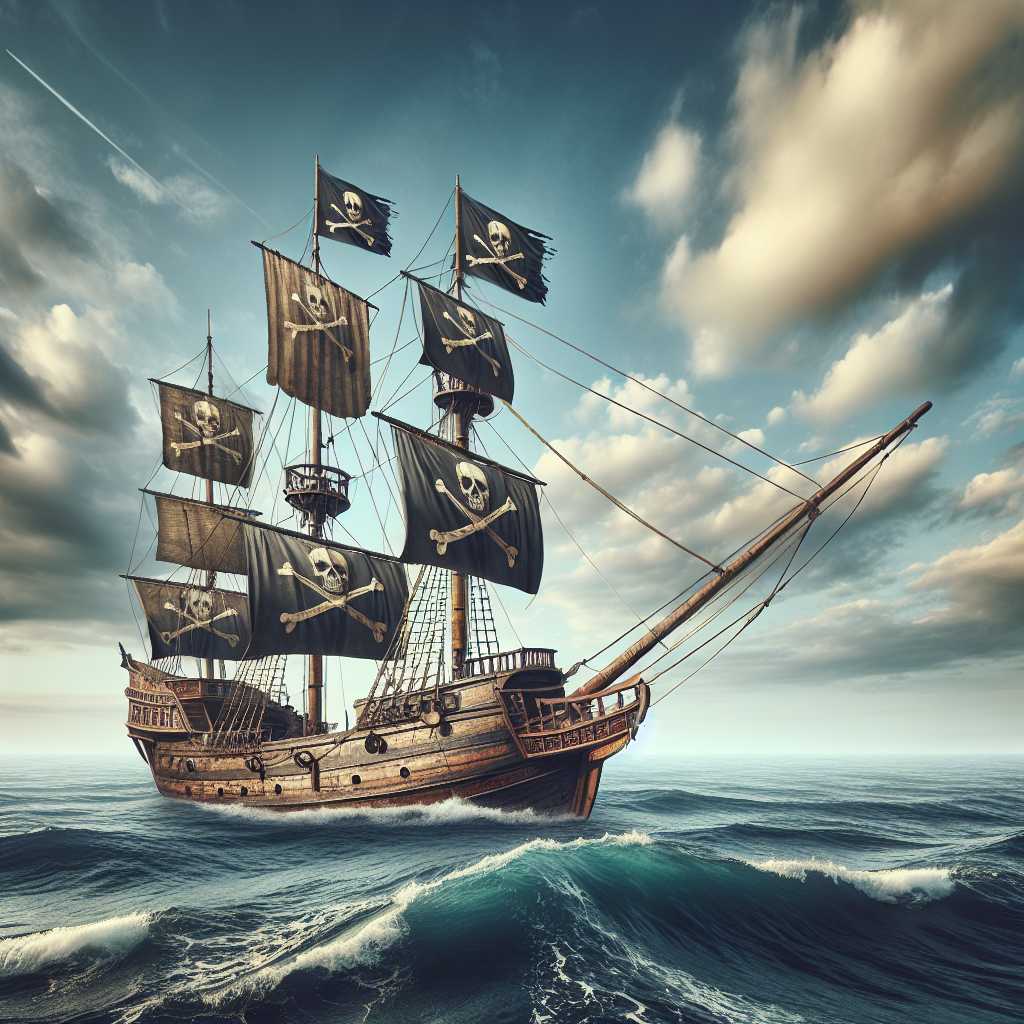##A Comprehensive Overview of the History and Modern Reality of Piracy
Introduction to Piracy
Throughout history, piracy has been a recurring phenomenon characterized by the act of engaging in criminal violence or theft on the high seas. Pirates, who can be individuals or groups, conduct their unlawful activities by boarding vessels, demanding ransomes, or stealing cargo. The image of pirates has been romanticized in popular culture, but in reality, piracy has often had significant economic and human costs.
Historical Roots of Piracy
Piracy dates back to ancient civilizations with records documenting acts of piracy as early as the 14th century BCE. The Mediterranean Sea, Red Sea, and waters around the Indian Ocean were hotspots for early pirate activity due to wealthy trade routes. In these areas, multiple cultures such as the Greeks, Romans, and Barbarossa engaged in or fought against piracy.
The Golden Age of Piracy
From roughly 1650 to 1720, an era known as the Golden Age of Piracy emerged. During this time, famous figures like Blackbeard, Captain Kidd, and Calico Jack roamed the Caribbean and American colonial shipping lanes. The allure of immense wealth and the popularity of privateering—where governments licensed ships to attack enemy nations’ vessels—contributed to the growth of piracy.
Pirates Versus Privateers
One aspect of ocean-going crime was the blur between piracy and privateering. Although both engaged in alike activities, what distinguished a pirate from a privateer was essentially legal authorization. Privateers held a letter of marque that legitimized their actions in times of war as a form of guerilla naval combat. Pirates held no such permissions.
Anti-Piracy Laws and Measures
Throughout various epochs, regional powers enacted legal frameworks intended to deter piracy. From execution to pardoning as a means to encourage cease in profitability for pirates, governments have taken diverse approaches to control piracy. The United Nations Convention on the LAW of the Sea (UNCLOS) is one modern document that outlines piracy laws on international waters.
Modern-Day Piracy
In contemporary times, piracy persists chiefly around the Horn of Africa, Southeast Asia, and South America’s northern coastline. The tactics have evolved but maintain fundamentals: attacking vessels for ransom or cargo—often causing high insurance costs for shipping companies.
Economic Implications of Contemporary Piracy
Current-day pirate activities have considerable implications for global shipping and economies. Nations with busy shipping lanes must invest heavily in defense and patrols to ensure safety for cargo ships and tankers. Moreover, shipping companies often pay significant insurance premiums for protection against pirate attacks.
Cultural Impact and Popular Media
Another face of piracy is its depiction in popular culture that ranges from literature such as “Treasure Island,” movies like “Pirates of the Caribbean,” to various musical compositions and video games centering around these anti-heroes. Though often shown as swashbuckling adventurers living beyond societal norms, this portrayal differs from the harsh realities faced by sailors throughout history.
Addressing Piracy Today
Today professionals work towards mitigating piracy through coordinated patrols, heightened maritime security protocols on ships, enhanced surveillance technology, legal reforms, and international cooperation. Anti-piracy initiatives sometimes face criticism over respecting pirates’ human rights during capture and indictment processes.
